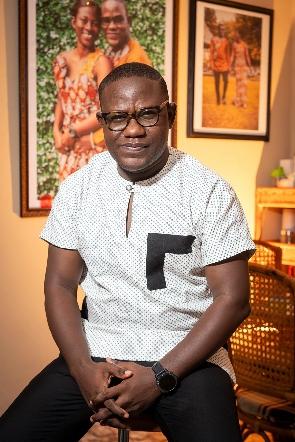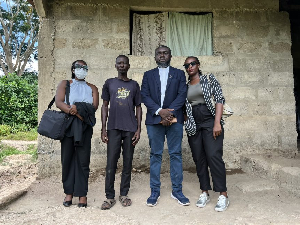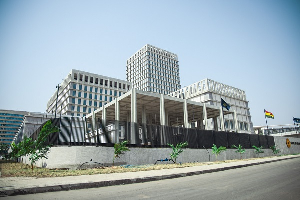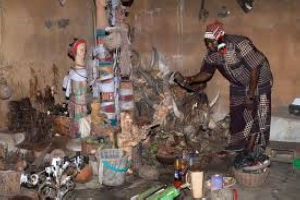Between January and now, prices of commodities have shot up astronomically. Living a healthy life has almost become impossible now because everything is outrageously expensive these days. Things are as hard as a rock and even the blind can see it.
The astronomical rise in the cost of living should be of great concern to us all. As long as we depend on each other to survive, we will consume what others sell. If you don’t produce everything you eat, wear, or drink, how much others sell what you will buy from them should matter to you.
We cannot continue to blame the government for all our woes as a people. It is not right to assume they are the cause of every wrong that happens here. Until we know what the problem is, we will not know what the solution may be. We need to look deep inside us and ask ourselves pertinent questions about how we think and live that has affected everything around us.
Sheer greed:
Let us face reality. The economy won’t get any better as long as we continue in certain habits. Truth is, one cedi will never be equivalent to a dollar ─ at least, not in this generation. Call me a false prophet but let me say without mincing words that goods and services will keep getting expensive each passing day. Do you know why? Our collective greed knows no bounds!
Ghana is a religious nation but only as a label. Inwardly, our sense of greed overrides our conscience to live (and allow others to live) a life of dignity. This is because we always want to steal at the least opportunity. When greed eats up the better part of a nation, nothing will ever be enough for its citizens.
The typical Ghanaian is typically greedy. We expect to make unimaginable profits off our goods, even to the detriment of ourselves. Take a look at what happened in the days of Covid-19. Sanitizers that were sold at a cedi or less before the pandemic suddenly became as expensive as oxygen. This was even at a time when such products were almost free on the global market.
Whenever there is a product in demand, the demon in the Ghanaian suddenly hikes its price! We are as greedy as the politicians we lambast from dawn to dusk. Little wonder every generation has a crop of leaders who think about only themselves and their families. It is almost always the same people who keep assuming leadership roles. Citizens today are tomorrow’s leaders.
We are not any different from the problems we keep complaining about. Every little opportunity, for us, is an opportunity to add another cedi to our commodities. If there is a coup in Mali, prices increase. Russia coughs. Another increase. We are part of a problem that will be difficult to solve unless we see attitudinal change as part of the solution.
Our greed is a cancer that is fast spreading to every facet of our society. This has been the foundation on which the ever-rising cost of living is being built. Our dishonesty has made nonsense of our currency. Salaries have stayed the same for ages but our overwhelming sense of greed has not. Our urgency to make huge profits puts an undue burden on everybody, including us.
Greed is like poison. It takes only a drop to destroy a nation. A drop of greed from everyone will cause an ocean of destruction. Greed passes on the pain of overpriced goods and services to the next customer. Guess what. You may be that next customer.
Lack of respect for money:
Where do you keep your coins? How much do they mean to you? I have sincerely observed that many Ghanaians are poor but do not respect money. We have disregarded the pesewas, for instance, to the extent that the 5 pesewas coin is of no use today. Very soon, it will be the 10 and 20 pesewas coins. These denominations are losing their value year after year. This knowingly or
unknowingly contributes to the high cost of living.
Sellers rarely increase the price of their goods or services by 10% or 20%. The least is a 50% or 100% increment. Ideally, governments only increase salaries up to about 10% yearly. This sadly cannot meet the demands of our erratic price hikes. Until we learn to respect every pesewa, price hikes will be a norm in this beloved country of ours… and the cost of living will continuously and forever remain unbearably high.
Have you noticed some traders increase the prices of their goods and services at their convenience when they have no change for their customers? A product that goes for, say GHC4, can quickly be increased to GHC5 just because the Ghanaian is difficult to find a cedi change. This is gladly accepted and taken for granted. The ramifications of such an attitude over time can be enormous.
In the United States, every dime means a lot. One can lose customers by increasing their prices by just a cent. People who hold in high esteem the littlest amount of money are deeply concerned about price hikes. The government cannot inculcate into us the habit of respecting money. This is a culture we all should intentionally cultivate.
Weak systems:
Everyone bears the brunt when institutions do not function as they should. Just as there is chaos when traffic lights do not work, no one can be controlled when institutions are weak. These weak institutions should be partly blamed for our high cost of living.
If the regulators and law enforcement agencies are corrupt, for instance, market leaders will pay their way out of everything. However, they will pass on that cost to the consumer. If institutions that are supposed to ensure the quality of our consumables are weak, we will always pay dearly with our lives for what we eat.
Weak systems shred a nation into pieces. They destroy in a day what has been built in centuries. I can confidently suggest that we have good laws in the books, except they don’t bite. Establishing strong institutions will automatically nip inflation in the bud. It works like magic.
In a nation such as ours that has weak systems and institutions, no price is ever high enough because after all, who determines the context of “high enough”? Those who can afford it need to make more money to afford it. Some who cannot are left in the pit of complaints and untold suffering while others find corrupt ways to afford their needs and wants.
When systems are weak, no one is in control because everyone controls their prices. Prices hinge on emotions. We are on a cheating spree. You cheat me, I cheat you. We all cheat the next person. The next person goes to cheat another. The rippling effect of our unregulated pricing system has brought upon us a self-inflicted inflation of poverty, hence, our incomes are quickly eroded.
No one wins in the vicious cycle of cheating. The winner is the loser. No matter how much you earn from your bounty, another takes it from you and hands it over to someone else. Overpricing your goods will make you the perpetrator. Buying another’s overpriced goods makes you the victim.
This is not to discredit the effect of global happenings on our market, especially when we import almost everything we consume. I am not oblivious to the fact that the world’s cost of living has generally increased. However, a deeper reflection of our pricing system exposes how overly expensive our goods and services are. It cuts across all fields, even accommodation. A house
built in 1900 recently increased its rent because of an increase in cement prices.
How smart! If you eat up others today, you will be eaten up by another tomorrow!
We are in a sinking ship. Let us kill our greed before it sinks this nation. Our cost of living should not be the price we are paying for our greed. Life could be more comfortable in this country if we could, at least, be more honest as a people. These are the values that build a nation.
The writer is a playwright and Chief Scribe of Scribe Communications, an Accra-based writing company (www.scribecommltd.com).
Opinions of Thursday, 9 November 2023
Columnist: Kobina Ansah















